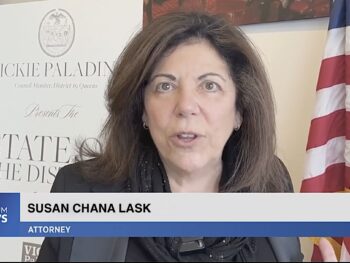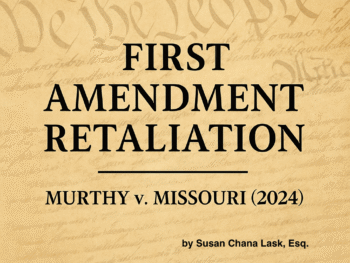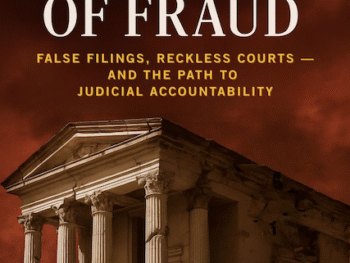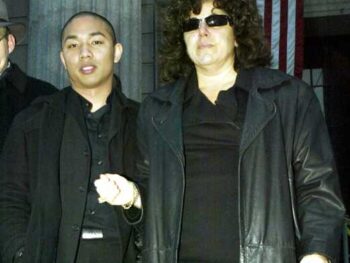Business By Jonathan D. Epstein
NEWS BUSINESS REPORTER
Amherst law firm agrees to pay fine
Settlement involves foreclosure practices
Updated: October 7, 2011, 7:18 AM
Steven J. Baum PC, the Amherst law firm that has been under heavy fire for its foreclosure practices, agreed Thursday to pay a $2 million fine and “extensively” overhaul its practices in a settlement with the U. S. Attorney’s Office in Manhattan that has statewide implications.
The agreement with Baum resolves a federal investigation into whether the state’s largest foreclosure law firm, on behalf of lenders, filed misleading affidavits, mortgage assignments and other documents in state and federal courts.
It doesn’t mean the firm was found to have committed “any unlawful practice or wrongdoing.” But it marks the first time the firm has admitted any mistakes or been penalized by the government for its role in the state’s foreclosure crisis and the surge in home seizures.
According to a government news release, the firm acknowledged in the agreement that “it occasionally made inadvertent errors in its legal filings in state and federal court, which it attributes to human error in light of the high volume of mortgage defaults and foreclosures throughout the state of New York in the wake of the national subprime mortgage crisis.”
The 40-year-old firm, started by Steven Baum’s father, handles about 40 percent of all foreclosures in the state, filing thousands of cases a year from its base at 220 Northpointe Parkway in Amherst. “In mortgage foreclosure proceedings, there are no excuses for sloppy practices that could lead to someone mistakenly losing their home,” Preet Bharara, U. S. Attorney for the Southern District of New York, said in a statement.
The settlement takes aim at a number of practices by the firm, including its use of the Mortgage Electronic Registration Systems or MERS. That’s an electronic mortgage registry system that tracks ownership of loans through multiple sales on the secondary market.
Instead of having to record each ownership change in local county clerks’ offices, as in the past, the original lender appoints “MERS” as its agent when the mortgage is first recorded, on behalf of any future owners. But in order to seize a home, under the law, the last servicer must actually own the loan in order to have a right to foreclose. That has been the root of many of the problems nationwide, as questions arose about the legitimacy of MERS.
Until recently, according to the government, Baum employees had been assigning mortgages from MERS to the firm’s clients on behalf of and with the consent of the electronic system, even though they had no legal connection to MERS. That process rendered the filings improper, even if the substance of the foreclosure—that the borrower was in default—was correct.
Under the settlement agreement, Baum and its employees are now prohibited from acting as an “officer” or “director” of MERS in assigning loans. The firm agreed to tell courts about pending foreclosures it is handling in which its staff already assigned a loan for MERS.
The firm also agreed to review original notes for “proper legal standing” and must also obtain “appropriate affidavits” from its clients “attesting to the fact that they possess original notes or have conducted a diligent search and the original note could not be found.”
Preparation of court pleadings must now be supervised by experienced attorneys, who will also review and approve documents before they are filed. The firm must also put in place a 12- to 24-month training program for attorneys.
And it must document compliance with the settlement and notify the government when objections are raised related to the accuracy of its court filings. ‘
In a statement, Baum said the settlement allows the firm to “resolve complex procedural issues” that are “common to all New York law firms” in foreclosures.
“We have agreed to changes in our foreclosure practice that go over and above what current law requires,” he said. “We will continue to adhere to the highest ethical standards and represent our clients with great professionalism and dedication.”
In exchange for paying the fine, Baum received a legal release from any potential financial fraud claims by the federal government under the 1989 Financial Institutions Reform, Recovery and Enforcement Act. However, that doesn’t release it from liability under other civil or criminal laws, and doesn’t stop other parties, including individual homeowners or other private parties, from pursuing their own lawsuits.
“I am glad the U. S. Attorney completed this phase of the Baum saga and that he is changing his practice,” said New York City attorney Susan Chana Lask, who had filed an earlier class-action case against Baum that was later settled confidentially. Baum also sued her personally for defamation, but his case was dismissed by a federal court in Buffalo. “I hope homeowners use the settlement to show the courts the foreclosure mill problem was real and damaged a lot of people’s lives. It’s not over.”
jepstein@buffnews.comnull
Comments Sort:NEWEST FIRST | OLDEST FIRST
A few years ago when my own home was in foreclosure we finally came up with the money to pay the back mortgage payments. We were told to bring the check to Baum’s offices and they refused to let my husband in the door even though he told them he was there to pay what was owed. After much cajoling he was finally let into the building. For whatever it is worth, there is definitely a problems with how they do business…. ROSANNA BELLO, WILLIAMSVILLE, NY on Fri Oct 7, 2011 at 10:04 AM
Susan, thank you for taking on a foreclosure mill and winning. They had to be shown how wrong they were in their actions. The Federal Govt. was exremely liberal in their settlement with this law firm, considering how much harm and misery they have caused. HAROLD HAHN, BUFFALO, NY on Fri Oct 7, 2011 at 09:59 AM









